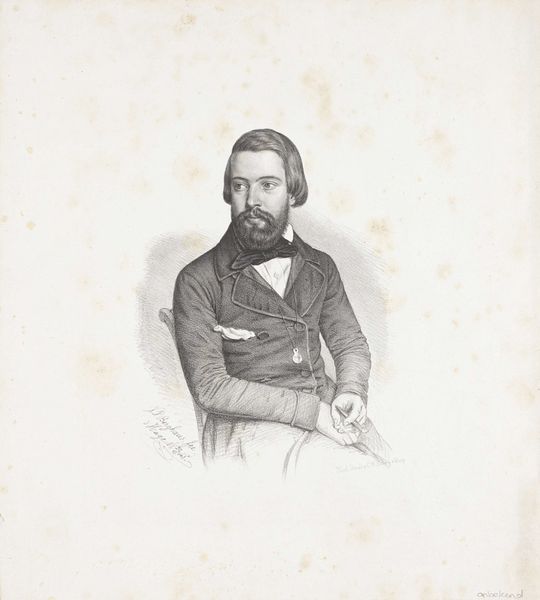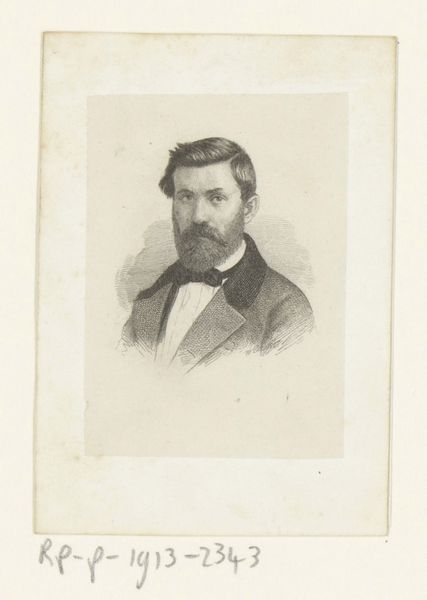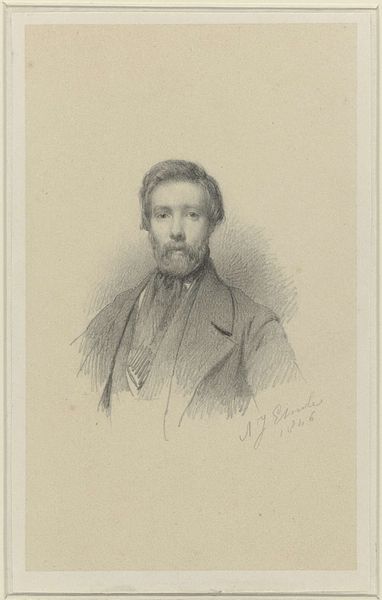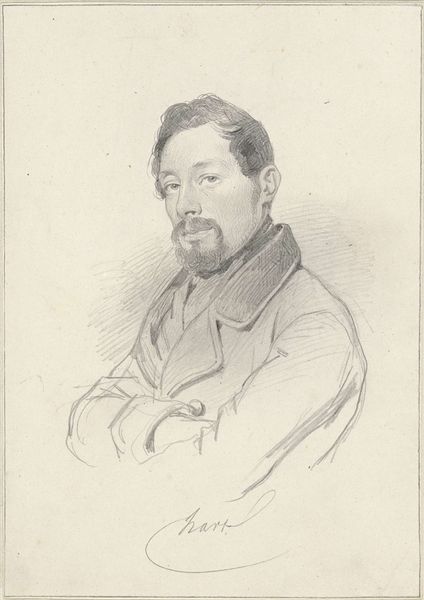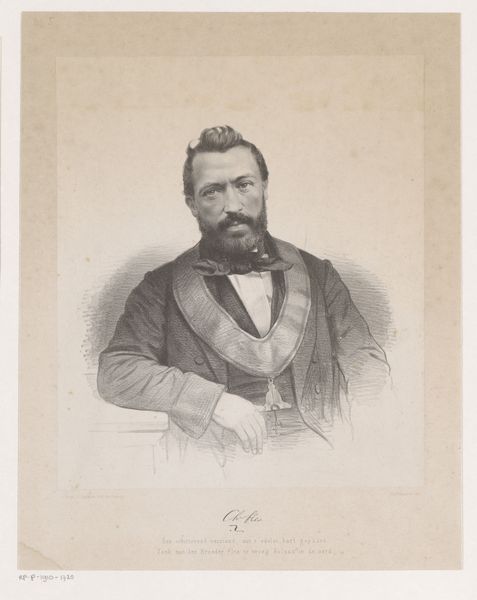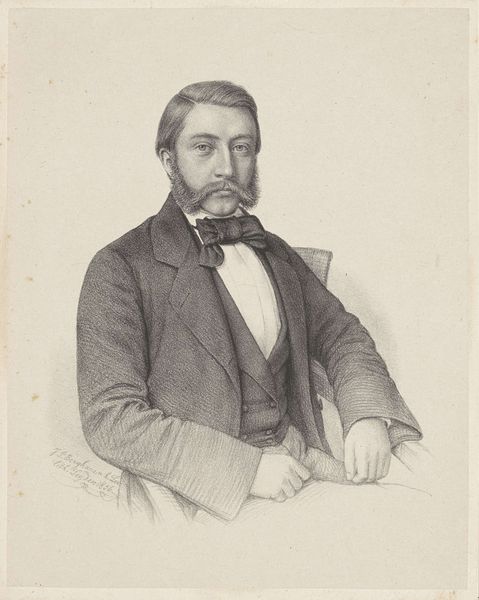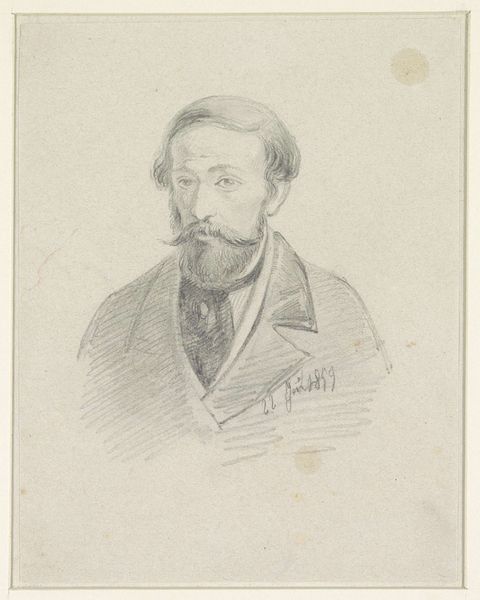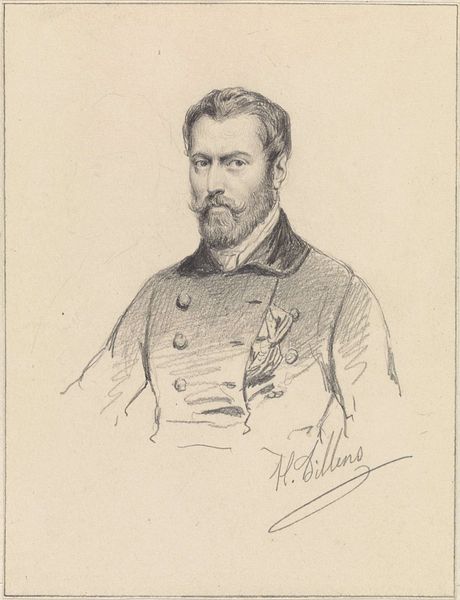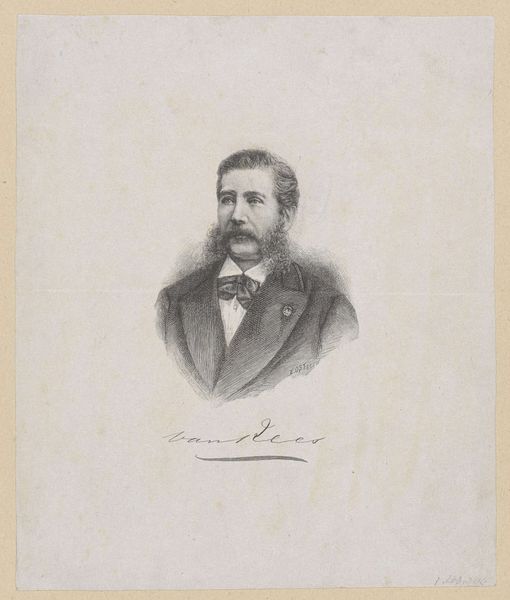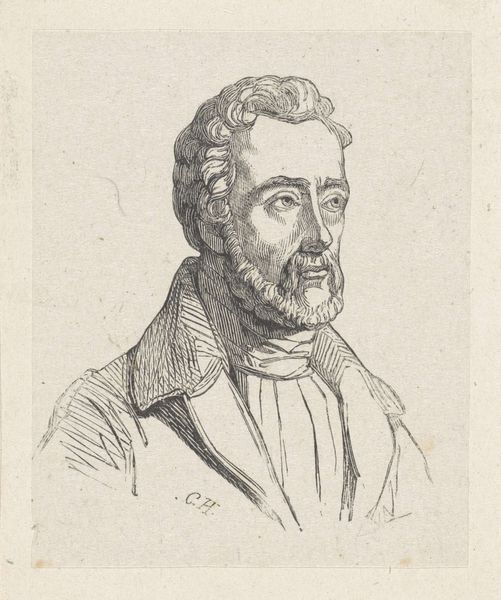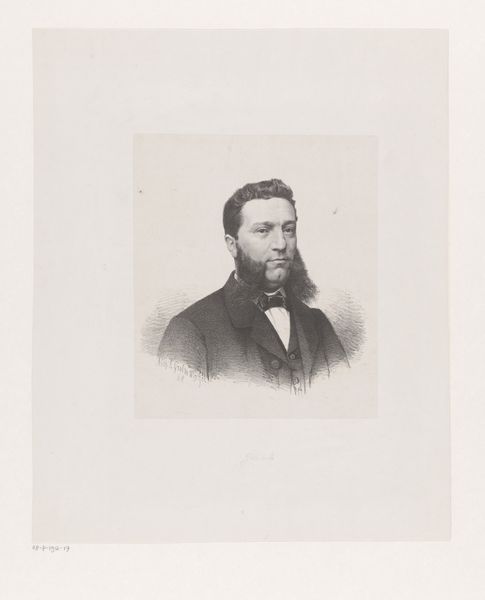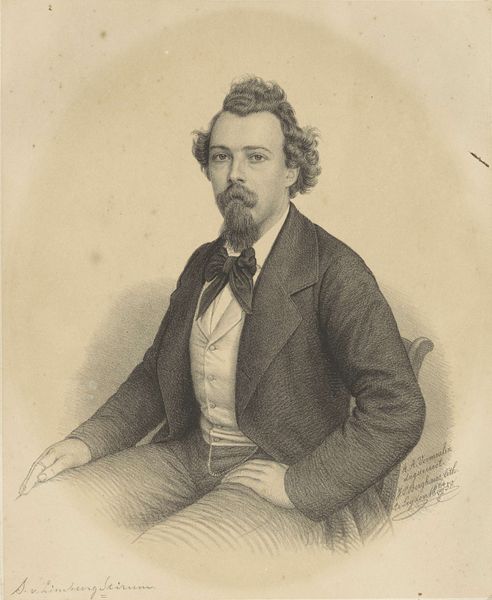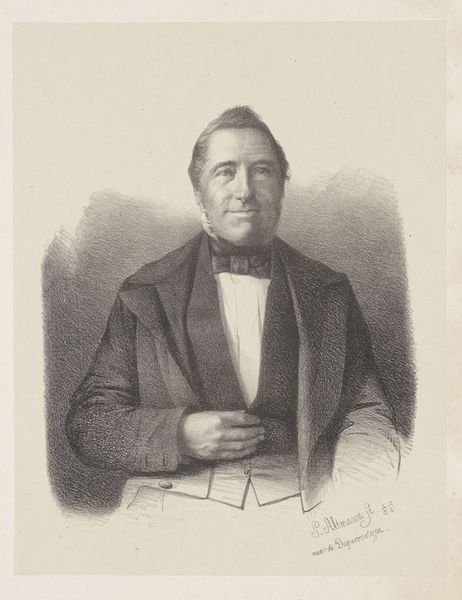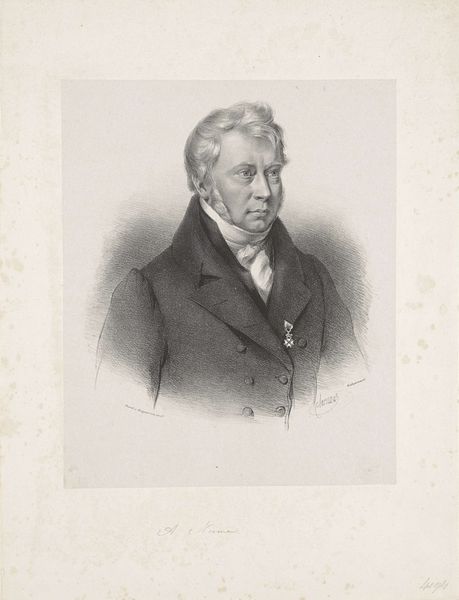
drawing, pencil, graphite
#
portrait
#
pencil drawn
#
drawing
#
facial expression drawing
#
light pencil work
#
pencil sketch
#
portrait reference
#
pencil drawing
#
pencil
#
limited contrast and shading
#
graphite
#
portrait drawing
#
pencil work
#
fine art portrait
#
realism
Dimensions: height 198 mm, width 161 mm
Copyright: Rijks Museum: Open Domain
Curator: Upon observation, the drawing evokes a somber stillness, a man caught in a reflective pause. There’s a quietude in the gray tones. Editor: Indeed. We're looking at "Portret van Jacobus Everardus Josephus van den Berg" by Johann Wilhelm (I) Kaiser, rendered in pencil around 1847. It's part of the Rijksmuseum collection. The subdued nature likely mirrors the prevailing aesthetic and social atmosphere. Curator: Notice how Kaiser masterfully employs the subtle gradations of graphite. The face emerges through layered strokes; see the way he suggests the light catching the brow and the soft modeling of the cheek? It speaks to form through tone. Editor: Absolutely. The choice of medium, however, speaks volumes about accessibility. Pencil sketches, like this, would have broadened participation in image-making beyond commissioned oil paintings. Curator: And the composition is deceptively simple. The artist's manipulation of depth— the focus on the face against the softer body. A true study in figure-ground relationships. Editor: I wonder about the portrait’s function. Was it a study for a larger work, a gift between acquaintances, or perhaps a preliminary character study? Who was van den Berg? How does this image contribute to how society remembers or constructs his image? Curator: Van den Berg’s personality seems almost muted by the texture. You feel his form before any emotion. Note the materiality. The slight tooth of the paper. These characteristics speak to a raw and fundamental level of aesthetic exploration. Editor: In examining a work such as this, it is imperative that one seeks to decode its political nature and its cultural setting—recognizing the effect this may have upon even this artwork's subtle composition, and even how those impact our current viewing experience. Curator: Ultimately, Kaiser’s "Portret van Jacobus Everardus Josephus van den Berg" offers us a quiet dialogue with technique, tone and materiality. It gives a profound yet subtle meditation on the very substance of form. Editor: Agreed. Viewing this, it opens many historical contexts which allows the study and better understanding of that time. I’m compelled to do my research to determine more details of what lay in that specific period.
Comments
No comments
Be the first to comment and join the conversation on the ultimate creative platform.
